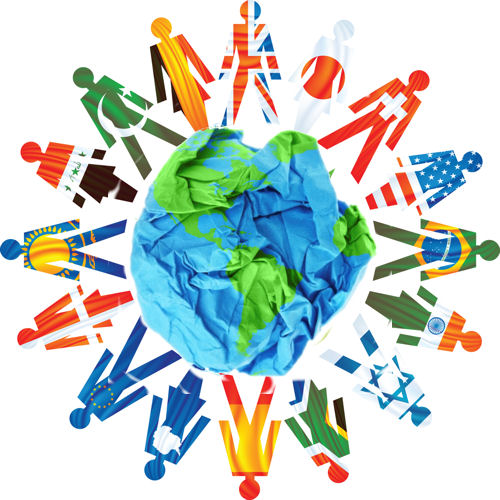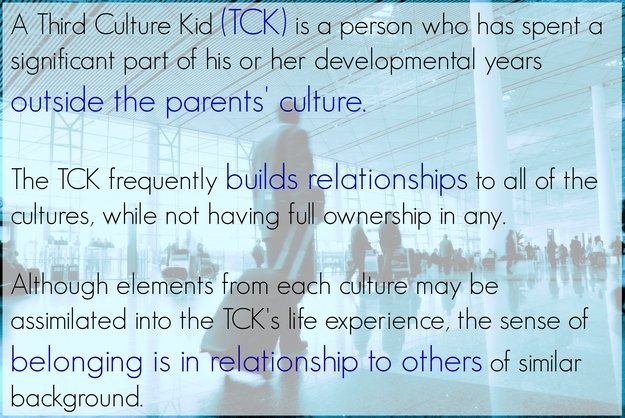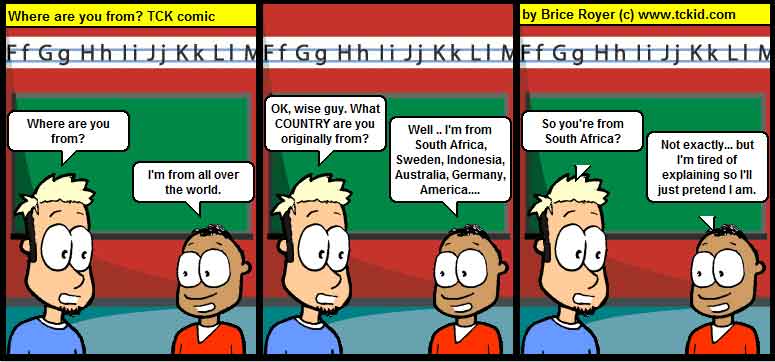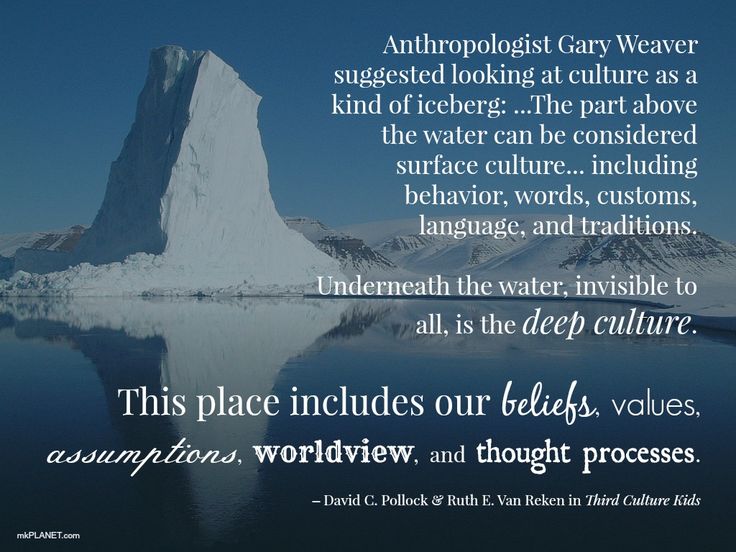|
During my ITC course we also looked a lot at Third Culture Kids (TCKs). These are generally students who move country a lot or have parents from different countries, but TCKs come in all shapes and sizes. In fact, many international teachers who move from place to place also have many similarities with TCKs.
Ruth Van Rekenwww.tckworld.com/ describes TCKS saying, “A third culture kid is a person who has spent a significant part of his or her developmental years outside their parents’ culture. The third culture kid builds relationships to all the cultures, while not having full ownership in any. Although elements from each culture are assimilated into the third culture kid’s life experience, the sense of belonging is in relationship to others of the same background, other TCKs.”.
Living in many countries or being the child of immigrants gives you many benefits. You get to experience different cultures, often learn new languages, make connections across the globe and more. However it also can come with several problems, which are important for international educators to help support students with. One of the big issues is not having a sense of belonging, one place to call home and even having difficulty when asked the question, 'So where are you from?'.
This video, So Where’s Home? A Film About Third Culture Kid Identity, by Adrian Bautista explores some of this ideas wonderfully.
I also think this video "What Kind of Asian Are You?" sums up some of the frustrations third culture kids can have. It also reminds me of some of the problems I have when someone firsts meets me, finds out I'm British and just wants to talk to me about the Royal Family or Fish N Chips...
Here are some great images to help your students explore ideas of being Third Culture Kids in your classroom. I will use these with my advisory at the start of the school year in August:
During the ITC workshop we also looked at Identity Icebergs:
Creating your own identity iceberg is a great way to help your peers and students understand more about you. At the start of the year I will have my students do this and we will also create a huge mind map style poster with branches showing all different aspects of every individuals identity but all pulled together.
The Iceberg activity reminded me of a great session I did when attending a Facing History Workshop.Facing History focusses on the way that everyone has a shared responsibility for the way history unfolds and gets people to analyze the reasons behind different individuals choices. When I did this activity we were all given a short paragraph about a different person living in pre-Nazi Germany, including shop keepers, school teachers and politicians. We then used the iceberg to look at different reasons why they would of or would have not voted for the Nazi Party. You could do a similar activity for any election, including the upcoming election. You can find out more about the Facing History Iceberg session here. They also have an identity chart resource here. How much does your identity tie in to the country you were raised in/live in? How much does this impact your day to day decisions? What are the most important elements that make up your identity? What assumptions to people make about you based on your appearance, accent or where you live/have lived? Leave your answers in the comments below. Comments are closed.
|
Archives
June 2023
|




 RSS Feed
RSS Feed